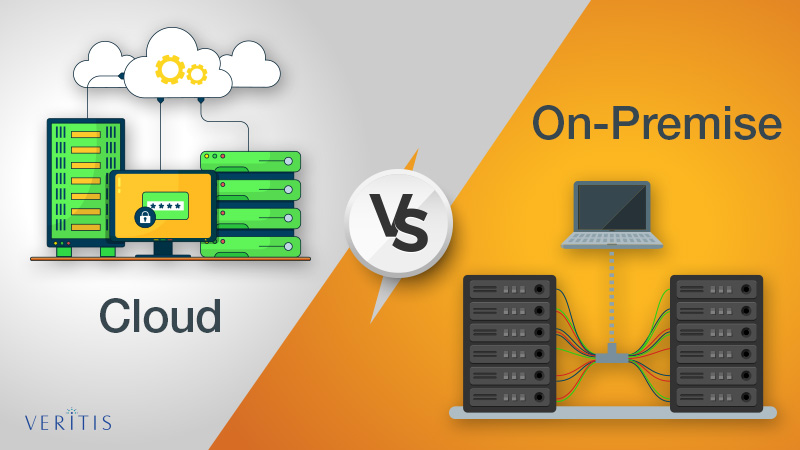Cloud Vs On Premise | This topic shows a comparison of features available in cloud vs. The fundamental difference between a cloud and on premise software is where it is installed, locally on the servers of the company or hosted on the vendors server. Software ownership, privacy, cost updates and additional services are also things that differ. How you manage your databases is a key question. Capex, or capital expenditures, are incurred when a company spends money to invest in new equipment.
But the differences don't stop there. With cloud security, everything is centralized, and therefore your costs tend to be lower. The main difference between the two is as follows: To help you make your decision, we put together an objective list of deployment pros and cons, examining time, budget, and people resources. The biggest decision is whether to have a cloud based or on premise based server infrastructure.

In recent years, a growing number of businesses have looked to migrate these applications to the cloud. The software is not stored in the cloud. While private cloud comprises complete s/4hana functionality and also extends geographical reach, the public cloud helps address challenges in the lob, overall strategy and erp. Sensitive workloads and data can be hosted in the private cloud, with less critical workloads hosted in a public cloud. Where specific features differ from. Read on to find out what resonates most with the culture of your organization. The fundamental difference between a cloud and on premise software is where it is installed, locally on the servers of the company or hosted on the vendors server. How you manage your databases is a key question. When looking at the pros and cons of cloud vs. It is left to the. Information about the development and administration features is included, as well. This topic shows a comparison of features available in cloud vs. Not everything will move there, of course.
The likes of amazon web services, microsoft azure and google cloud sql have all experienced huge growth,. But the cloud provides scalability, flexibility, and it support for semiconductor companies to manage surges in computing/data storage needs and to provide data management expertise. Where specific features differ from. With cloud security, everything is centralized, and therefore your costs tend to be lower. The good news is, splunk works equally well in the cloud as it does on premise.
With cloud security, everything is centralized, and therefore your costs tend to be lower. Where specific features differ from. Cloud solutions are usually more expensive than in. When looking at the pros and cons of cloud vs. The likes of amazon web services, microsoft azure and google cloud sql have all experienced huge growth,. It is left to the. Sensitive workloads and data can be hosted in the private cloud, with less critical workloads hosted in a public cloud. If fast roi is a core goal in your business strategy, then this system is likely not the right choice. To help you make your decision, we put together an objective list of deployment pros and cons, examining time, budget, and people resources. Read on to find out what resonates most with the culture of your organization. Software ownership, privacy, cost updates and additional services are also things that differ. Capex, or capital expenditures, are incurred when a company spends money to invest in new equipment. How you manage your databases is a key question.
Another group says that having the data in the cloud is much more advantageous and much more secure for your data. The main difference between power bi report server on premise vs. The first factor is how important uptime is to your business. If fast roi is a core goal in your business strategy, then this system is likely not the right choice. The good news is, splunk works equally well in the cloud as it does on premise.

Let's look closer at each of them. With cloud security, everything is centralized, and therefore your costs tend to be lower. If fast roi is a core goal in your business strategy, then this system is likely not the right choice. This topic shows a comparison of features available in cloud vs. It is left to the. How you manage your databases is a key question. Sensitive workloads and data can be hosted in the private cloud, with less critical workloads hosted in a public cloud. That often makes the time to deployment and roi longer. When compared to cloud software, on premise is more flexibility, reliability and security. The main difference between the two is as follows: In recent years, a growing number of businesses have looked to migrate these applications to the cloud. The first factor is how important uptime is to your business. The good news is, splunk works equally well in the cloud as it does on premise.
Cloud Vs On Premise: Not everything will move there, of course.
0 komentar